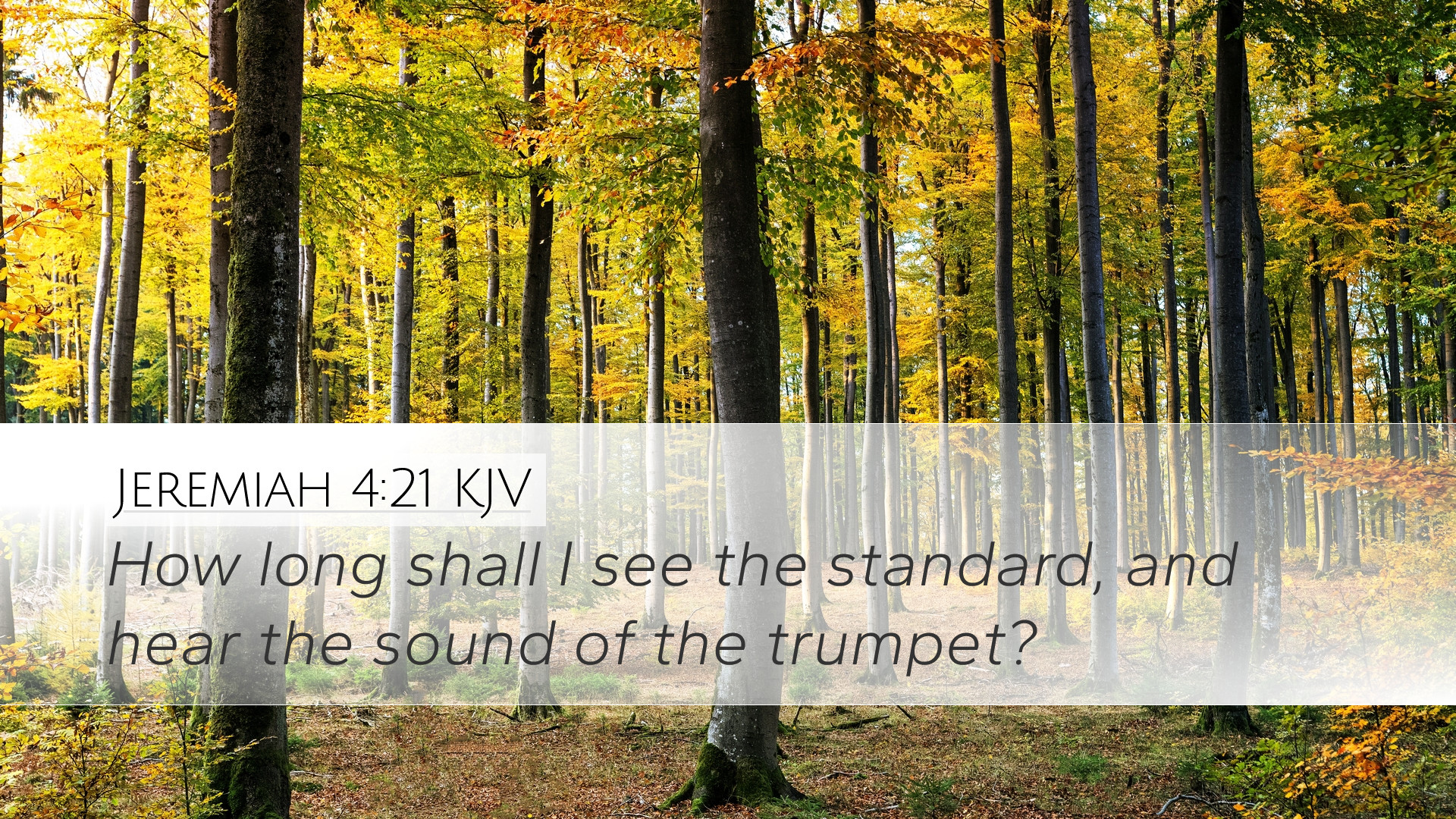Commentary on Jeremiah 4:21
Jeremiah 4:21 reads: "For my people are foolish, they have not known me; they are sottish children, and they have none understanding: they are wise to do evil, but to do good they have no knowledge."
Overview
This verse reflects the profound lament of the Prophet Jeremiah as he observes the spiritual blindness and moral decline of Israel. It provides an encapsulation of the themes of ignorance, folly, and the perversion of wisdom within a covenant community called to holiness.
Insights and Analysis
Here, we draw insights from various public domain commentaries, distilling their thoughts for deeper understanding and application.
Matthew Henry's Commentary
Matthew Henry outlines the core issues presented in this passage, noting three primary characteristics of the people as outlined in the text:
- Foolishness: Henry emphasizes that the people of Israel are termed 'foolish' not only for their lack of knowledge but also for their rejection of God's ways.
- Ignorance of God: He highlights that true wisdom begins with a relationship with God. Their failure to know Him is tantamount to a spiritual and moral void.
- Twisted Wisdom: They display a perverse ability to do evil while exhibiting ignorance toward righteousness. This reflects a serious ethical inversion—a theme that resonates throughout the prophetic literature.
Albert Barnes' Notes on the Bible
Albert Barnes provides contextual analysis, focusing particularly on the consequences of the people's ignorance:
- Consequences of Rebellion: Barnes states that this foolishness leads to dire consequences—impending judgment that Jeremiah is foretelling. Ignorance does not excuse guilt but rather amplifies it.
- Emphasis on Retribution: He links the behaviors of Israel to a divine retribution that will manifest through the coming crises and invasions. The moral decay is juxtaposed with impending calamity.
- Reflection on Spiritual Condition: Barnes argues that spiritual ignorance and moral folly will always lead to disaster when they go unchecked within a community.
Adam Clarke's Commentary
Adam Clarke elaborates on the term 'sottish,' explaining its connotation:
- Definition of Sottish: Clarke explains that 'sottish' refers to a state of foolish drunkenness—indicating an inability to discern right from wrong due to spiritual stupor.
- Moral Blindness: He notes that such a condition renders the people incapable of understanding their plight or responding appropriately to God’s call for repentance.
- Contrast of Wisdom: Clarke further emphasizes the tragic irony that the people are adept at engaging in wicked pursuits, while utterly devoid of insight when it comes to living a life that honors God.
Theological Reflections
This commentary serves as a critical reminder of the danger of spiritual complacency. Theologically, the verse distills profound truths about human nature and divine expectation:
- The Nature of Wisdom: True wisdom is rooted in the knowledge of God (Proverbs 9:10). Ignorance towards His character and commands leads to a form of spiritual foolishness.
- Call to Awareness: Jeremiah's lament is a call for awareness. It invites a self-examination of one’s own understanding and adherence to God's word, striking at the heart of both corporate and personal spirituality.
- Practical Implications: The passage challenges pastors and theologians to not only preach against ignorance but also to foster environments where the knowledge of God is pursued deeply and passionately.
Conclusion
Jeremiah 4:21 stands as a poignant reminder of the spiritual dangers lying in the shadows of ignorance and folly. It calls forth a prophetic voice that encourages a return to wisdom rooted in knowing God. As pastors, students, and theologians engage with this text, may there be a commitment to teach the fullness of God's word, guiding others away from spiritual blindness and into the illuminating presence of the Almighty.


